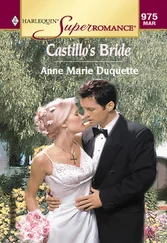“I promised Sami they’d be all right. I promised… I want… they have to have an opportunity to… there must be a sunny story in their lives, Sven. At some point,” she manages to say at long last.
“We’re going to do our best. We’ll all do everything we possibly can.”
“Of course, of course,” she replies, directing her words at her shoes.
Sven fingers the police cap in his hands.
“The girl from the council, yes, she’ll be staying with the children for a few days. Until they’ve sorted it all out. She’s very considerate. You don’t have to worry about that, I, well, I’ve been asked to drive the children home tonight.”
It takes a few seconds before the significance of what he has said sinks in for Britt-Marie. Before she’s hit with the insight that she’s no longer needed.
“Obviously, obviously. It’s best that way, obviously,” she whispers.
Outside on the soccer pitch, Kent has gotten out of his BMW. He sees Britt-Marie and Sven through the window and puts his hands in his pockets, slightly nonplussed, looking as if he’s standing on a street corner and not quite willing to admit that he’s lost. He’s never been good at talking about death, Britt-Marie knows that. He’s the kind of person who can sort out all the practicalities; he can make calls; he’ll kiss your eyelids. But he’s never been good at feeling things.
His eyes seem to be considering walking into the pizzeria, but his feet steer off in the opposite direction. He makes a few movements with which he seems to be heading back into the BMW, but then the soccer ball comes rolling up and stops by his feet. Omar is standing a few feet away. Kent puts the sole of his shoe on the ball and looks at the boy. Kicks the ball to him. Omar stops it with the side of his foot, so it bounces back to Kent.
Thirty seconds later Kent is in the middle of the pile of children, his shirt creased and hanging down outside his belt, his hair untidy. Instantly, he’s happy. When the ball comes flying to him at knee-height, he gathers himself and kicks as hard as he can, misses the ball, and watches one of his shoes flying off and clearing the top of the fence along the side of the recreation center.
“Mother of God,” mumbles Britt-Marie from the window. The children watch the shoe flying off. Turn to Kent. He looks back at them and starts laughing. They also laugh. He plays the rest of the match with one shoe, and when he scores he runs around the pitch with Omar perched on his back.
Omar hugs him a little too hard. A little too long. As teenagers get few chances to do outside of a soccer pitch. Kent hugs him back. Because soccer allows him to do it.
Sven has turned away from the window when he mumbles:
“Don’t dislike me, Britt-Marie, for not calling the social services earlier. I just wanted to give Sami the chance to get things organized. I thought… I… I… I just wanted to give him the chance. Don’t dislike me for it.”
Her fingers skim through the air between them as close as they can without actually touching him.
“Quite the opposite, Sven. Quite the opposite.”
He looks about to say something, so she quickly interjects:
“There are more kids here now than earlier. Where are they all from?”
Sven puts his police cap back on his head. It ends up slightly wonky.
“They’ve been coming here every evening since the cup. More and more of them every evening. If it carries on like this, soon Borg won’t be a team, it’ll be a club.”
Britt-Marie doesn’t know what that means, but it sounds beautiful. She thinks Sami would have liked it.
“They look so happy. Even in the midst of all this they can look so happy when they’re playing,” she says, almost enviously.
Sven rubs the back of his hand against his beard stubble. He looks tired. She has never seen him tired. But at long last the corners of his mouth twitch slightly, his eyes glitter at her, and he says:
“Soccer forces life to move on. There’s always a new match. A new season. There’s always a dream that everything can get better. It’s a game of wonders.”
Britt-Marie straightens out a crease in his shirt, her hand landing as lightly as a butterfly, without actually touching his body under the fabric.
“If it’s not too inappropriate, I should like to ask you a very personal question, Sven.”
“Of course.”
“What soccer team do you support?”
Surprised, his face releases and changes.
“I’ve never supported a team. I think I love soccer too much. Sometimes your passion for a team can get in the way of your love for the game.”
It seems quite fitting for a man like Sven that he should believe more in love than in passion. He’s a policeman who believes more in justice than in the law. It suits him, she thinks to herself. But she doesn’t tell him as much.
“Poetic,” she says.
“Course.” He smiles back.
She wants to say so much more. Maybe he does too. But in the end all he can manage to utter is: “I want you to know, Britt-Marie, that every time there’s a knock on my front door, I hope it’s you.”
Maybe he is also intending to say something bigger, but he holds off and walks away. She wants to call out to him, but it’s too late.
The door tinkles cheerfully behind him, because doors really don’t seem to get when the moment is or isn’t right.
Britt-Marie dabs her cheeks with her handkerchief so no one can see she’s wiping her eyes. Then she walks purposefully through the pizzeria to Somebody. There are still people everywhere. Ben’s mother and Dino’s uncle and Toad’s parents, but also a lot of other people whose faces Britt-Marie can only dimly recall from the soccer cup. They are cleaning up and putting the chairs in order, and she only just manages to resist the urge to straighten them again.
“It was, what’s-it-called? Beautiful funeral, huh?” says Somebody, her voice a little gravelly.
“Yes,” agrees Britt-Marie, before getting out her wallet and immediately continuing: “I should like to ask what I owe you for the car door.”
Somebody drums the edge of her wheelchair.
“Well. I been, you know, thinking about that car, huh, Britt-Marie. I don’t have good car mechanic, huh? Maybe did it wrong, you know? So first you check the work, huh? Then you come back. Pay.”
“I don’t understand.”
Somebody scratches her cheek so no one can see she’s wiping her eyes as well.
“Britt-Marie very honest person, huh. Britt-Marie does not steal. So then I know Britt-Marie comes back to Borg, huh. To pay.”
“Of course,” she replies, turning away. “Of course.”
She wants to get busy cleaning up, but then has a merciless realization that the people she does not know, inside the pizzeria, have already done it. Somebody has already told them all what to do. And now there is nothing left to finish.
Britt-Marie is not needed here anymore.
She stands on her own in the doorway until the children stop playing. They go home, one after the other. At a distance, Sven waits patiently for Vega and Omar. He lets the children take the time they need. Vega goes directly to the backseat and closes the door behind her, but Omar wanders on his own along the plank and runs his fingers across the white jerseys. He leans over the candles on the ground, carefully picks one up that has gone out, and relights it by holding it over the flame of another, then puts it back. When he straightens up he sees Britt-Marie in the doorway. His hand moves almost unnoticeably away from his hip, in a little wave. A wave from a young man is much more than a wave from a child. She waves back as much as she can without showing him that she is crying.
She goes down to the parking area just as the police car pulls into the road and heads off towards the children’s house. Kent is waiting for her, sweaty, his shirt creased and hanging loose, his hair on end to one side of his large head — and he still only has one shoe. He looks quite, quite mad. It reminds her of how he used to look when they were children. Back then it never bothered him that other people would shake their heads at him; he was never afraid of making a fool of himself. He never needed anyone’s affirmation except hers.
Читать дальше
![Fredrik Backman Britt-Marie Was Here [Britt-Marie var här] обложка книги](/books/61260/fredrik-backman-britt-marie-was-here-britt-cover.webp)










